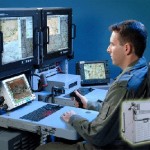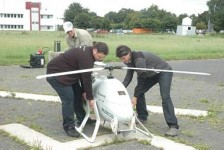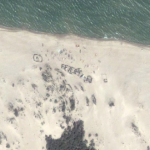Browse: Page 6
By europolice on 3. Oktober 2012
 Lange angekündigt und nun endlich erschienen: unsere deutschsprachige CrimethInc.-Textsammlung!
Lange angekündigt und nun endlich erschienen: unsere deutschsprachige CrimethInc.-Textsammlung!
Auf fast 300 Seiten gibt es einen Rundumschlag aus den letzten Jahren des CrimethInc.-Schaffens.
Die Buchwerbung liest sich so:
Message in a Bottle versteht sich als Einladung, eine gegenwärtige und lebendige anarchistische Praxis zu entwickeln. Individuelle Ausbrüche aus der Verwertungslogik, Ladendiebstahl, Massenproteste, sowie direkte Aktionen, aufständische Perspektiven und eine anarchistische Auseinandersetzung mit den herrschenden Verhältnissen sind die Grundlage dieser Einladung.
Basierend auf Texten des CrimethInc.-Kollektivs (aus den USA) wird hier eine aktuelle und anschlussfähige widerständige anarchistische Praxis und Theorie aufgezeigt.
Dabei durchläuft die Textsammlung die verschiedenen Phasen des Kollektives – vom romantischen, individualistischen Anarchismus hin zu einer reflektierten und analytischen Perspektive auf einen revolutionären Umsturz. (weiter auf crimethinc.blogsport.de)
Posted in Disko, European Police, Was tun?
By europolice on 3. Oktober 2012
 Move to tribunal would limit rights of women who allege undercover officers tricked them into relationships
Move to tribunal would limit rights of women who allege undercover officers tricked them into relationships
Rob Evans and Paul Lewis
Three women who started the legal action say they had relationships with the undercover police officer Mark Kennedy, pictured. Photograph: Philipp Ebeling for the Guardian
Police chiefs have been accused of attempting to hide away a potentially embarrassing court case launched by women who say they were tricked into forming long-term, intimate relationships with undercover officers.
The women have begun legal action against the police, alleging undercover officers „deliberately and knowingly deceived“ them into the relationships of up to six years by concealing their identity.
The women, who say they have suffered immense emotional trauma and pain, want the case heard at the high court. But lawyers for the Metropolitan police have applied to move the case into a little-known tribunal.
If the case goes to tribunal, the women will get no automatic right to an oral hearing, nor the chance to cross-examine witnesses and see the evidence, nor read the reasons for losing if that were the verdict, nor appeal against the verdict. (more on guardian.co.uk)
Posted in English, European Police
By europolice on 3. Oktober 2012
 A police mistake in a response to a Freedom of Information request accidentally exposed an undercover operation to infiltrate a group of animal rights extremists.
A police mistake in a response to a Freedom of Information request accidentally exposed an undercover operation to infiltrate a group of animal rights extremists.
The police force – which has not been named – released a report with sensitive information blacked out after a request under the Freedom of Information Act.
But when the report by the Office of Surveillance Commissioners (OSC) was copied and pasted into another document, the redactions disappeared and the sensitive information was revealed.
The Times newspaper reports that the document showed that a secret police unit that monitors domestic extremism is involved in the operation. (more on dailymail.co.uk)
Posted in English, European Police
By europolice on 2. Oktober 2012
ByJoe Wertz
The clog — which is pushing down the price of West Texas Intermediate crude from Oklahoma, creating a gap with its international rival, Brent — is making traders rich.
Information is everything, and traders are using high-tech extremes to extract data about oil storage and flow from the high-security oil hub. Photographers in helicopters? That’s relatively low-level when it comes to these storage tank spy games, Businessweek reports:
Recently, photographers have started using infrared cameras to peer inside the tanks. The difference in heat can often show where the oil line is.
Aerial photography is common. A bird’s-eye view allows analysts to estimate storage levels by calculating the angle of shadows cast by massive tanks’ floating roofs. Continue reading „Oil Espionage: Traders Spy on Oklahoma Hub With Satellites, Sensors and Infrared Cameras“
Posted in English, Space
By europolice on 1. Oktober 2012
 Um in Erdbebengebieten schnell helfen zu können, ist es für die Bergungsmannschaften vor Ort wichtig, sich ein Bild der Schadenslage zu machen. Gemeinsam mit dem Technischen Hilfswerk (THW) hat das Deutsche Zentrum für Luft- und Raumfahrt (DLR) die Einsatzmöglichkeiten von Tragschraubern für den Katstrophenschutz und Rettungseinsatz untersucht.
Um in Erdbebengebieten schnell helfen zu können, ist es für die Bergungsmannschaften vor Ort wichtig, sich ein Bild der Schadenslage zu machen. Gemeinsam mit dem Technischen Hilfswerk (THW) hat das Deutsche Zentrum für Luft- und Raumfahrt (DLR) die Einsatzmöglichkeiten von Tragschraubern für den Katstrophenschutz und Rettungseinsatz untersucht.
Live-Bilder durch Lufterkundung
Dazu unterstützten die Wissenschaftler des DLR-Instituts für Flugsystemtechnik das THW bei einer Erdbebenübung in der Nähe von Wesel. Mit dem Tragschrauber, einem Drehflügelflugzeug dessen Rotor nur durch die anströmende Luft in Drehung versetzt wird (Autorotation), erkundeten sie die Schadenslage aus der Luft und übermittelten entsprechende Luftbilder an die THW-Einsatzleitung am Boden. Da Tragschrauber ohne Gefahr des Strömungsabrisses sehr langsam fliegen können, eignen sie sich besonders gut für die Lufterkundung. Per Live-Übertragung wurden Videobilder an die Bodenstation gesendet und hochaufgelöste Fotos der Schadensgebiete direkt aus dem Tragschrauber ins Internet übertragen. Continue reading „DLR untersucht den Einsatz von Tragschraubern für Katastrophenschutz und Rettungseinsätze“
Posted in European Police, Forschung
By europolice on 30. September 2012
Senior officers are urging David Cameron to ignore his party’s right wing and retain a cross-border policy
Senior police officers are urging David Cameron to resist pressure from Tory MPs to opt out of European police co-operation after teacher Jeremy Forrest was apprehended under an EU arrest warrant on suspicion of abducting teenager Megan Stammers.
The Observer has learned that senior British officers working at Europol’s HQ in The Hague, as well as UK-based officers, are lobbying the UK government on the benefits of EU cross-border crime fighting and investigations, ahead of a crucial decision on the UK’s participation in police co-operation to be taken in 2014. The issue has come into sharper focus after Forrest was apprehended under an EU warrant on Friday following successful co-operation between EU forces.
More than 100 Tory MPs recently went public to demand that Cameron uses his right to opt out of EU crime and policing, including the arrest warrant, in order to prevent further loss of sovereignty to Brussels. (more on guardian.co.uk)
Posted in English, European Police, Justiz
By europolice on 28. September 2012
 DHS to test unmanned aircraft for variety of applications
DHS to test unmanned aircraft for variety of applications
The US Department of Homeland Security this week issued a call for unmanned systems makers to participate in a program that will ultimately determine their safety and performance for use in first responder, law enforcement and border security situations.
In a twist that will certainly raise some eyebrows, the program’s results of the ironically named program — The Robotic Aircraft for Public Safety (RAPS) — will remain unavailable to the public, which considering how involved the actual public may be with these drones is shall we say, unfortunate. Specifically the DHS says: „The information within each test report will be classified as For Official Use Only, and will not be shared with the general public. All company-restricted information will remain proprietary to the SUAS provider, and not shared publicly without explicit consent.“
According to the DHS, the RAPS program will feature flight tests to evaluate unmanned systems „using key performance parameters under a wide variety of simulated but realistic and relevant real-world operational scenarios, such as law enforcement operations, search and rescue, and fire and hazardous material spill response.“ (more on networkworld.com)
Posted in Drohnen, English, European Police
By europolice on 28. September 2012

von: Arno Neuber
“Militärisch sinnvoll”, nennt der Inspekteur der Bundesluftwaffe, Generalleutnant Müllner, die Anschaffung bewaffneter Drohnen durch die Bundeswehr. “Der Appetit der Politik wird abnehmen, solche Einsätze wie Afghanistan zu wiederholen”, sagt der Militär. Deshalb seien Kampfdrohnen künftig “strategisch-taktisch unverzichtbar”.
Halten wir fest: Internationale Kampfeinsätze, Kriege sollen leichter führbar sein, weil sie losgelöst von eigenen Opfern, von realen Einsatzerfahrungen, auch von Bildern in den Medien möglich sein werden – und weil das Töten so billiger wird.
Verteidigungsminister de Maizière unterstützt die Anschaffung der Waffen. Skrupel hat er keine. “Ethisch ist eine Waffe stets als neutral zu betrachten”, wird er im “Spiegel” am 3.8.2012 zitiert. “Und je besser man zielen kann, desto weniger Schäden gibt es.” Continue reading „Stoppt die Drohnenkrieger! – Vorschlag für eine Kampagne gegen Drohnen“
Posted in Drohnen, Was tun?
By europolice on 28. September 2012
 A smartphone-app is being used for the exchange of information between the City of London Police and the visitors at the Olympics 2012. Using integrated Crowd-Monitoring-Technology which was implemented by scientists at the German Research Center for Artificial Intelligence (DFKI) in Kaiserslautern (Germany), crowds can be tracked in real-time and given relevant security information.
A smartphone-app is being used for the exchange of information between the City of London Police and the visitors at the Olympics 2012. Using integrated Crowd-Monitoring-Technology which was implemented by scientists at the German Research Center for Artificial Intelligence (DFKI) in Kaiserslautern (Germany), crowds can be tracked in real-time and given relevant security information.
Large crowds of people can harbor risks. For one, the dynamics of large crowds of people can’t be easily measured, and also security forces can rarely react directly in critical situations. The smartphone-apps of the City of London Police and the Westminster City Council send sensor data collected by mobile phones to a server during the Olympic Games when thousands of fans are streaming through the center of London. The data which is given voluntarily and anonymously is then analyzed and visualized on a map. By doing this it is possible to see in which direction and at what speed the crowds are moving and where conglomerations of people can reach critical dimensions. By using this kind of „Crowd Monitoring“ the City of London Police can follow the streams of visitors during the Olympic Games ‚live‘ in their borough, they can recognize potentially hazardous situations early on and inform the visitors directly. Continue reading „Crowd-Monitoring makes the Olympics safer – Smartphone-apps support the security forces in London“
Posted in Crowd Control, English, European Police, Policing Major Events
By europolice on 27. September 2012
 Warsaw, 27 September 2012 — At its 40th meeting today, the Frontex Management Board designated the Agency’s first Fundamental Rights Officer and adopted working methods for the Consultative Forum on Fundamental Rights.
Warsaw, 27 September 2012 — At its 40th meeting today, the Frontex Management Board designated the Agency’s first Fundamental Rights Officer and adopted working methods for the Consultative Forum on Fundamental Rights.
The Management Board designated Ms. Inmaculada Arnaez Fernandez as the Agency’s first Fundamental Rights Officer. As mandated in the revised Frontex Regulation, the tasks of Fundamental Rights Officer include monitoring and reporting on a regular basis to the Consultative Forum, as well as to the Frontex Management Board and to the Executive Director of the Agency.
Ms. Arnaez is a lawyer from Spain, with fifteen years’ experience in fundamental rights, humanitarian law and international relations. She has worked to strengthen the protection of fundamental rights of returnees and internally displaced persons, reform the judiciary and facilitate access to justice for victims of conflict in the Balkans and Latin America. Continue reading „Management Board designates Fundamental Rights Officer“
Posted in Border Control, English
By europolice on 27. September 2012
 Tjerk Timan, Nelly Oudshoorn
Tjerk Timan, Nelly Oudshoorn
Abstract
In surveillance studies the terms “sousveillance” and “inverse surveillance” describe forms of surveillance that have a bottom-up and democratic character. However, in this paper this democratic notion is questioned by looking into practices and experiences with both Closed Circuit Television (CCTV) and mobile cameras by Dutch citizens. By intervening in the nightlife district of the Rotterdami city centre, data has been gathered on both mobile- and CCTV camera confrontations. From this, an exploration is made into how mobile cameras are experienced in the Nightlife landscape. Comparing these experiences with CCTV provides insight into new surveillance issues that emerge due to the mobile camera. The perspective of analyzing surveillance technologies as hybrid collectives that may take different shapes in different places, allows for a contribution that attempts to improve our understanding of the current changes in the surveillance technology landscape.
Full Text: mobiles Continue reading „Mobile cameras as new technologies of surveillance? How citizens experience the use of mobile cameras in public nightscapes“
Posted in English
By europolice on 27. September 2012
 Matthias Monroy
Matthias Monroy
Mehrere Städte in den USA automatisieren die polizeiliche Strafverfolgung. Die Beschaffung von Software zur Vorhersage von Kriminalität wird mit Sparmaßnahmen begründet
Polizeibehörden in mehreren US-Städten versuchen, Straftaten mit Software zu prognostizieren. Dabei wird auf Daten aus der Videoüberwachung zugegriffen. Auch EU-Agenturen interessieren sich für die automatisierte Überwachung des Internet oder eine „Social Network Analysis“ zur Visualisierung von Beziehungen zwischen Personen und Sachen. Das BKA nutzt das kommerziell vertriebene „Analyst’s Notebook“ und eine selbst programmierte Anwendung zur „Inhaltlichen Datenträgerauswertung“.
„Smarter Cities“ auch für Geheimdienste und Polizeibehörden: Unter der prominenten Marke will sich der US-Konzern IBM im Bereich der „vorhersagenden Polizeiarbeit“ („Predictive Policing“) als Marktführer profilieren. Vor drei Jahren übernahm IBM hierfür die Firma SPSS, die bis dahin mit dem Slogan „The Evolution of Crime Fighting. From reactive… to proactive… to predictive…“ geworben hatte (Digitale Überwachungstechnologie: Auch ein deutscher Exportschlager). Wie sich der Konzern das in der Praxis vorstellt, wird in einem Werbevideo gezeigt: Polizisten trinken gemütlich Kaffee und haben dennoch genug Zeit, vor einem vermeintlichen Delinquenten gemütlich am Tatort zu warten.
Das Orakeln von unerwünschtem Verhalten wird durch die zunehmende Verknüpfung unterschiedlicher digitaler Datenquellen automatisiert: In der US-Stadt Memphis hatte SPSS 2005 das sogenannte „Blue CRUSH“-System installiert, mit dem die dortige Polizei Straftaten vorhersehen will. Bis heute kostete das damalige Pilotprojekt etwa 400.000 US-Dollar und führte angeblich zu einer Reduktion der schweren Kriminalität um 30%. (weiter auf heise.de)
Posted in BKA, Border Control, Datenbanken, Europäischer "Polizeikongress", European Police, Europol, Kommunikation, Software/ IT
By europolice on 27. September 2012
By SUSANNE GÜSTEN
The two young men from the Ivory Coast have had one lucky break: A man from Senegal is letting them sleep nights on the floor of a basement he shares with 10 other Africans in the Kumkapi district under the crumbling Byzantine-era city wall, where migrants from all corners of the world wash up at the edge of Europe.
But with the basement locked in the daytime, their waking hours are spent wandering the back streets of Kumkapi in a daze of bewilderment and hunger.
“We don’t know anyone and we don’t speak any Turkish,” Moussa, 28, a car mechanic from Abidjan, said last week. “We can’t just walk up to a stranger and ask for help.”
Although they are refugees from the latest spate of political violence in the Ivory Coast, it has not occurred to the men to apply for asylum here. (more on nytimes.com)
Posted in Border Control, English
By europolice on 27. September 2012
 The German magazine Junge Welt published on 30 August 2012 an article which looks at cooperation between the German police (Bundespolizei) and Belarus in border control and return of irregular migrants.[1] German cooperation is part of wider cooperation at an EU level with the former Soviet republic.
The German magazine Junge Welt published on 30 August 2012 an article which looks at cooperation between the German police (Bundespolizei) and Belarus in border control and return of irregular migrants.[1] German cooperation is part of wider cooperation at an EU level with the former Soviet republic.
Border control at EU’s eastern borders
Germany has been involved in building Belarus’s border management capacity for several years. The German government confirmed, in its answer to a parliamentary request by the parliamentary group Die Linke that support in training and equipment worth €20 million (about £16 million) was provided to the Belarusian police by the German Ministry of Interior since 2008. Up to 2011, no less than 26 border control related cooperation with Belarus measures were made. In 2010, the Bundespolizei established an office in Minsk, Belarus’s capital city. Cooperation is reported to have stopped after the crackdown on protesters in Belarus following the contested results of the general elections in December 2010. [2] Continue reading „Germany – Border control and deportation operations to Belarus“
Posted in Border Control, English, European Police, Policing Major Events
By europolice on 26. September 2012
India will be among the first countries to get BB10 next year but RIM won’t compromise on customers‘ security says CEO Thorsten Heins
Research In Motion’s (RIM’s) new CEO Thorstein Heins maintains that while the Canadian cell phone company will co-operate with Indian authorities on „lawful interception“ the company can not grant access to the entire traffic on its network, especially related to enterprise customers.After a prolonged stand-off, RIM had provided access solutions to telecom operators for consumer traffic but access to corporate information remains an issue. The company has remained firm on its stand that it has not provided any access solution for its enterprise customers to the Indian authorities, a point that was contested by the Indian telecom officials as reported in an earlier ET story.
„Security of our customers matters to us. We continue to work with Indian authorities to help them achieve what they need to achieve but we don’t break the promise we make to our customers, which is a totally secure and private enterprise communication,“ said Heins, in an exclusive interview with ET. Continue reading „BlackBerry BB10: India to be a priority market; customers‘ security to be prime focus“
Posted in English, European Police, Kommunikation, Software/ IT
By europolice on 26. September 2012
Eine Wissenschafts-Drohne hat bei ihrer Tour über die norditalienische Region Emilia-Romagna durch Zufall eine Cannabis-Farm entdeckt. Die Drohne habe eine professionelle Anlage mit 182 Marihuana-Pflanzen in der Umgebung der Stadt Ravenna geortet, teilte die Finanzpolizei mit. Auf dem verlassenen Gelände, das von dichtem Wildwuchs umgeben sei, seien sogar Bewässerungs- und Beleuchtungsanlagen angelegt worden. Die Blüten der wasserintensiven und lichtbedürftigen Cannabispflanze liefern den Grundstoff für Drogen wie Marihuana und Haschisch.
Die Polizei beobachtete nach der Entdeckung das Grundstück und nahm die Drogen-Farmer fest. Die Drohne war eigentlich unterwegs, um Häuser zu identifizieren, die durch zwei Erdbeben im Mai dieses Jahres beschädigt worden sein könnten. Continue reading „Wissenschafts-Drohne entdeckt Hanf-Plantage in Italien“
Posted in Drohnen, European Police
By europolice on 26. September 2012
 Ein hochrangiger Offizier der iranischen revolutionären Streitkräfte hat gestern bestätigt, dass die islamische Republik die selbst hergestellte Aufklärungsdrohne des Typs „Shahed 129“ in Dienst gestellt hat. Die Reichweite wird im Vergleich zu früheren Typen verdoppelt.
Ein hochrangiger Offizier der iranischen revolutionären Streitkräfte hat gestern bestätigt, dass die islamische Republik die selbst hergestellte Aufklärungsdrohne des Typs „Shahed 129“ in Dienst gestellt hat. Die Reichweite wird im Vergleich zu früheren Typen verdoppelt.
Die „Shahed 129“ kann maximal für 24 Stunden in der Luft bleiben. Ihre Reichweite beträgt 2000 Kilometer. Damit ist der Iran ab sofort in der Lage, die meisten Gebieten im Nahen Osten, darunter auch Israel, ins Visier zu nehmen. Der Offizier behauptete zudem, dass sein Land künftig auch Angriffsdrohnen entwickeln werde.
Parallel zu dieser Meldung zitierte die halboffizielle Fars News Agency einen weiteren Offizier mit der Aussage, dass die iranische Marine letzte Woche bei einer Übung in der Straße von Hormus vier Antischiffraketen eines neuen Typs getestet habe. Alle Raketen hätten ein großes Zielschiff getroffen und es innerhalb von nur 50 Sekunden versenkt. Continue reading „Iran setzt eigenproduzierte Drohne ein“
Posted in Drohnen, Militaer
By europolice on 26. September 2012
 Lebensretter Aufklärungsdrohnen
Lebensretter Aufklärungsdrohnen
Der Test war ein voller Erfolg: Unbemannte Flugobjekte, sogenannte Drohnen, flogen kürzlich vom Truppenübungsplatz Grafenwöhr bis nach Burglengenfeld. Das dafür verantwortliche Bataillon der Bundeswehr aus Lüneburg übte mit ihrem Kleinfluggerät Zielortung (KZO) dabei zwar über zivilem, aber unbewohntem Gebiet. Mit der Übung schloss das Bataillon die nationale Ausbildung seines Aufklärungstrupps für die EU-Battlegroup ab.
Während einer weiteren Übung in Grafenwöhr erklärten Bundeswehrsoldaten an der Bodenkontrollstation des KZO, dass bei den Flügen keinerlei Gefahr für die Bevölkerung bestand. Für das Luftfahrzeug, das im Durchschnitt 700 Meter hoch flog, ist ein Mindestabstand von 500 Metern zu bebautem Gebiet vorgeschrieben. Auch die Benutzung des Luftraums war in dieser Höhe nur für angemeldete Rettungsflüge zulässig. Ferner besitzt die Bundeswehr lediglich unbewaffnete Drohnen, die zu Aufklärungszwecken dienen.
Ein Absturz sei generell sehr unwahrscheinlich. Um einen unkontrollierten Weiterflug der Drohne zu vermeiden, sind drei Notfallprotokolle programmiert. Das Objekt kann in einer Kreisbahn fliegend die Flughöhe anpassen, um den Funkkontakt zur Bodenstation wieder herzustellen, zum anderen die voreingestellte Flugroute zu Ende fliegen oder sofort den Fallschirm auslösen und landen. Continue reading „Bundeswehr testet unbemannte Luftfahrzeuge im Truppenübungsplatz Grafenwöhr“
Posted in Drohnen, Militaer
By europolice on 25. September 2012
 Angeblich wird der libysche Übergangsrat bald eine Ausschreibung für ein hochgerüstetes Grenzüberwachungssystem veröffentlichen. Das Projekt könnte das teuerste seiner Art werden
Angeblich wird der libysche Übergangsrat bald eine Ausschreibung für ein hochgerüstetes Grenzüberwachungssystem veröffentlichen. Das Projekt könnte das teuerste seiner Art werden
Europäische Rüstungskonzerne stehen vor milliardenschweren Aufträgen in Libyen. DefenseNews berichten, die libysche Übergangsregierung verhandele über den Kauf einer sensorgestützten Grenzsicherungsanlage. Zu den Interessenten gehören demnach alle großen Anbieter zivil-militärischer Überwachungstechnik: EADS Cassidian, Finmeccanica, Thales und BAE Systems. Auch die US-amerikanischen Rüstungskonzerne General Dynamics und Northrop Grumman gehören zu den potentiellen Bietern. An Vorverhandlungen sind die britische, französische und italienische Regierung beteiligt.
Zwar ist bislang keine Ausschreibung veröffentlicht worden. Jedoch wird davon ausgegangen, dass es sich bei den gewünschten Systemen um Radar, Kameras, Drohnen, Hubschrauber und geländegängige Fahrzeuge handelt. Die gesamte Plattform soll durch hochtechnisierte Kommandozentralen gesteuert werden. Das Projekt wird als Wiederintegration früherer bewaffneter Kämpfer beworben: Die Anlagen sollen von bewaffneten Rebellen als eine Art Grenz-Miliz betrieben werden. (weiter auf heise.de)
Posted in Border Control, Drohnen, European Police, Militaer, Software/ IT, Space
By europolice on 25. September 2012
 e-GEOS has been named Earth Observation Operator of the Year 2011 by Euroconsult, the leading global research and analyst firm specializing in the satellite sector. The award was presented to Marcello Maranesi, e-GEOS’ Chief Executive Officer, at the 4th Symposium on Earth Observation, held on September 13-14 in Paris.
e-GEOS has been named Earth Observation Operator of the Year 2011 by Euroconsult, the leading global research and analyst firm specializing in the satellite sector. The award was presented to Marcello Maranesi, e-GEOS’ Chief Executive Officer, at the 4th Symposium on Earth Observation, held on September 13-14 in Paris.
The awards are based on a performance analysis of the market players and assessed by a jury of experts from Euroconsult. As part of the awards process, the jury uses a stringent set of criteria including both quantitative evaluations (financial performance indicators such as revenue, revenue growth) and qualitative assessments (including innovation, strategic decisions related to infrastructure, commercial strategy and partnerships and their impact.). Continue reading „e-GEOS named “Earth Observation Operator of the Year”“
Posted in English, Space
 Lange angekündigt und nun endlich erschienen: unsere deutschsprachige CrimethInc.-Textsammlung!
Lange angekündigt und nun endlich erschienen: unsere deutschsprachige CrimethInc.-Textsammlung!













